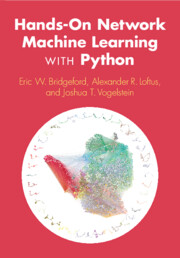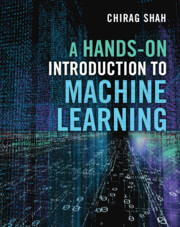Hands-On Network Machine Learning with Python
Bridging theory and practice in network data analysis, this guide offers an intuitive approach to understanding and analyzing complex networks. It covers foundational concepts, practical tools, and real-world applications using Python frameworks including NumPy, SciPy, scikit-learn, graspologic, and NetworkX. Readers will learn to apply network machine learning techniques to real-world problems, transform complex network structures into meaningful representations, leverage Python libraries for efficient network analysis, and interpret network data and results. The book explores methods for extracting valuable insights across various domains such as social networks, ecological systems, and brain connectivity. Hands-on tutorials and concrete examples develop intuition through visualization and mathematical reasoning.The book will equip data scientists, students, and researchers in applications using network data with the skills to confidently tackle network machine learning projects, providing a robust toolkit for data science applications involving network-structured data.
- Provides an accessible entry point to network machine learning for data scientists and researchers
- Demonstrates the practical application of network analysis using Python
- Bridges the gap between theoretical concepts, intuition-driven reasoning, and real-world applications for networks
Reviews & endorsements
'Networks are everywhere these days. The exponential growth of network data sets demands ever more sophisticated, flexible and scalable modeling techniques. This book provides a concise introduction to basic concepts, mathematical foundations and algorithmic approaches in network analysis. Highly recommended to all practitioners, students and professionals alike.' Olaf Sporns, Distinguished Professor, Indiana University Bloomington
Product details
August 2025Paperback
9781009405393
527 pages
244 × 170 mm
Not yet published - available from August 2025
Table of Contents
- Preface
- Terminology
- Part I. Foundations:
- 1. The network machine learning landscape
- 2. End-to-end biology network machine learning project
- Part II. Representations:
- 3. Characterizing and preparing network data
- 4. Statistical models of random networks
- 5. Learning network representations
- Part III. Applications:
- 6. Applications for a single network
- 7. Applications for two networks
- 8. Applications for multiple networks
- 9. Deep learning methods
- Appendix A. Network model theory
- Appendix B. Learning representations theory
- Appendix C. Overview of machine learning techniques
- Index.






